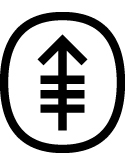A phase II study of continuous infusion of trimetrexate in patients with refractory acute leukemia Journal Article
| Authors: | Kheradpour, A.; Berman, E.; Göker, E.; Lin, J. T.; Tong, W. P.; Bertino, J. R. |
| Article Title: | A phase II study of continuous infusion of trimetrexate in patients with refractory acute leukemia |
| Abstract: | Trimetrexate, a second-generation folate antagonist, is a potent inhibitor of dihydrofolate reductase with a broader spectrum of activity and different mechanism of entry and intracellular accumulation than methotrexate. Six patients with refractory or relapsed acute leukemia were treated with a 5-day continuous infusion of trimetrexate of 8 mg/m2 /day after an initial loading dose of 4 mg/m2 to achieve a target plasma concentration of 0.2-0.5 μM. In 4 patients with peripheral blasts at study entry, transient decrease or disappearance of blasts was observed, although no decrease of bone marrow blasts occurred. Mucositis was dose-limiting and severe in 4 patients. Neutrophil and platelet nadirs occurred on day 5-12 postinfusion. Because of dose-limiting mucositis, this dose schedule of trimetrexate is not recommended for further studies in refractory acute leukemia. However, other dose schedules (24- to 72-hr infusions) and its use as a modulating agent with thiopurines or leucovorin in patients that are resistant to methotrexate should be explored. © 1995 Informa UK Ltd All rights reserved: reproduction in whole or part not permitted. |
| Keywords: | adult; clinical article; aged; clinical trial; fatigue; phase 2 clinical trial; leukopenia; mucosa inflammation; nausea; thrombocytopenia; acute leukemia; folinic acid; drug blood level; infusions, intravenous; intravenous drug administration; mercaptopurine; trimetrexate; leukemia, myelocytic, acute; leukemia, lymphocytic, acute; human; male; female; priority journal; article; support, non-u.s. gov't |
| Journal Title: | Cancer Investigation |
| Volume: | 13 |
| Issue: | 1 |
| ISSN: | 0735-7907 |
| Publisher: | Informa Healthcare |
| Date Published: | 1995-01-01 |
| Start Page: | 36 |
| End Page: | 40 |
| Language: | English |
| DOI: | 10.3109/07357909509024893 |
| PUBMED: | 7834472 |
| PROVIDER: | scopus |
| DOI/URL: | |
| Notes: | Article -- Export Date: 28 August 2018 -- Source: Scopus |
Altmetric
Citation Impact
BMJ Impact Analytics
Related MSK Work






